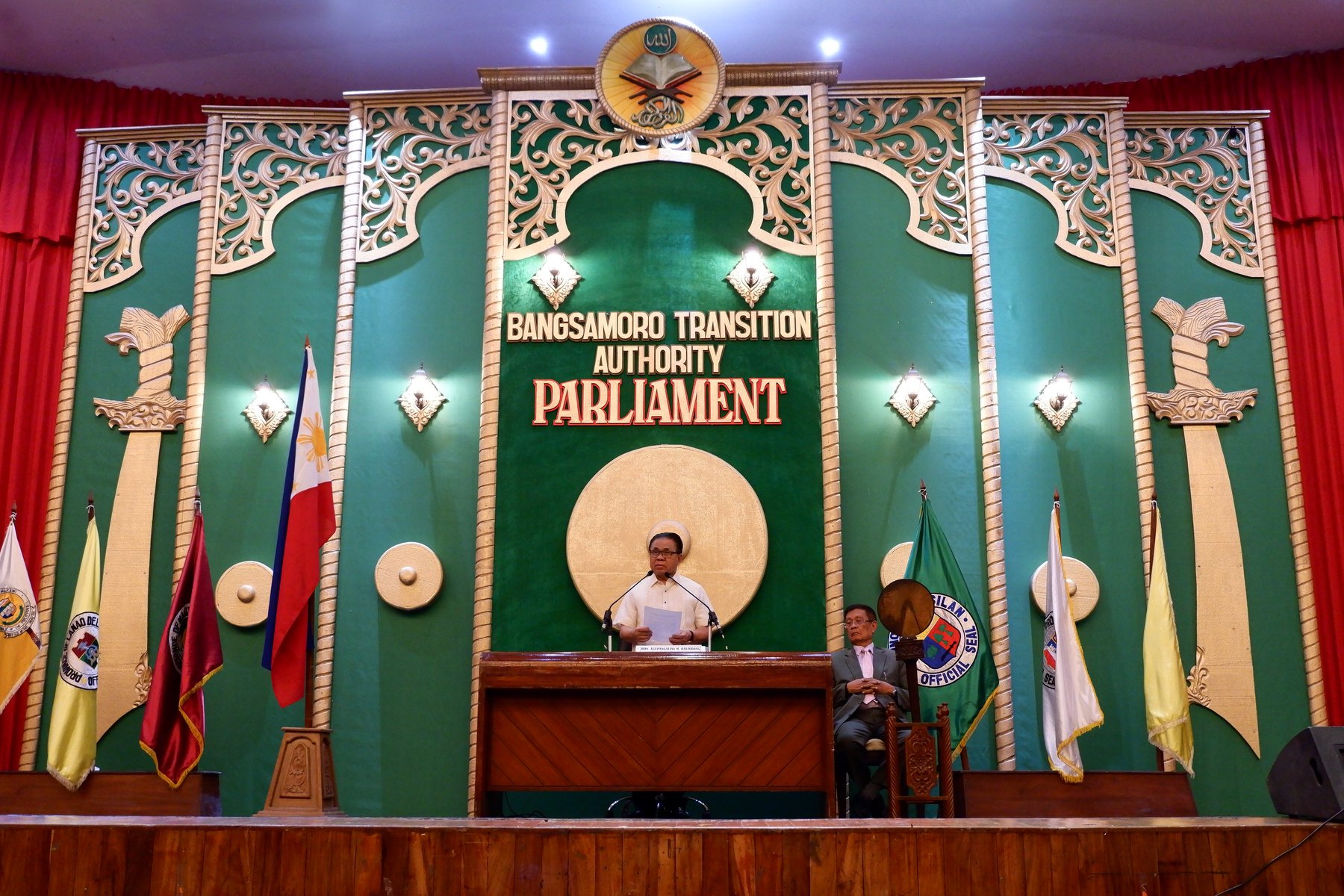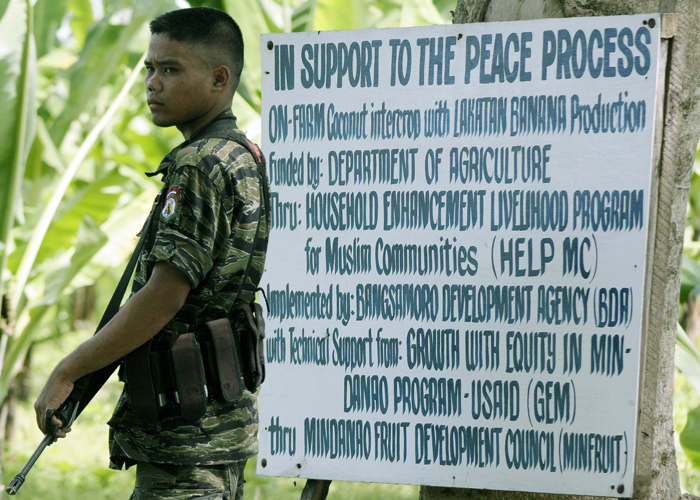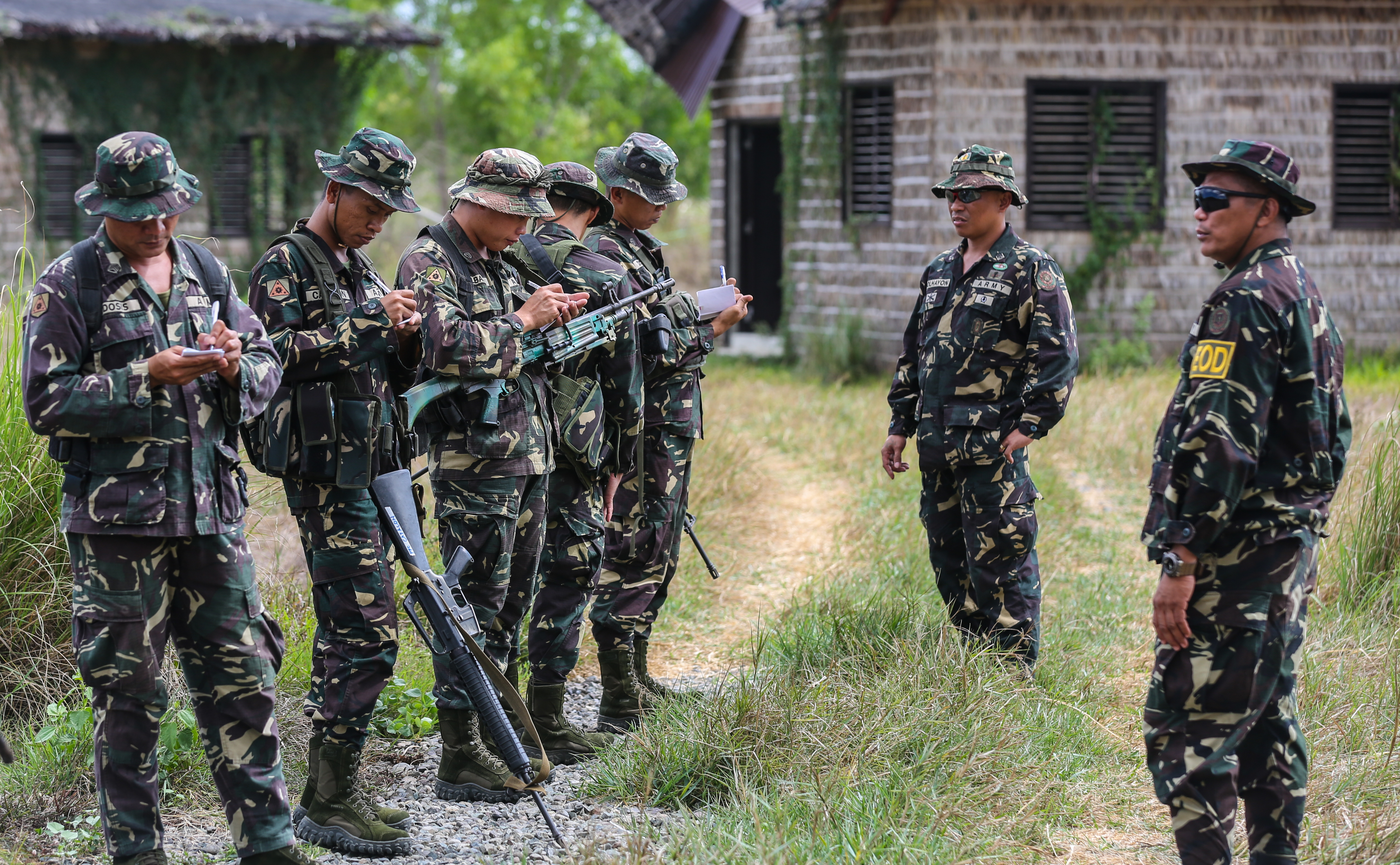
On 28 October, Philippine president Rodrigo Duterte signed a law postponing the first parliamentary elections in the Bangsamoro Autonomous Region in Muslim Mindanao (BARMM) from 2022 to 2025. The bill had been approved by lawmakers in the Senate and House of Representatives in September, after a year of campaigning from the Bangsamoro Transition Authority (BTA)—fronted by the former rebels of the Moro Islamic Liberation Front (MILF)—to extend their mandate to govern. Interim Chief Minister Al Haj Murad Ebrahim, in power since the region was formed in 2019, had argued that more time was needed to strengthen democratic institutions after setbacks amid the COVID-19 pandemic.
Yet delaying the elections is a risky move in a region plagued by separatist violence for generations. The process of decommissioning MILF rebels and their weapons is not yet complete, whilst Islamist militant groups remain a threat, despite being on the back foot and confined to operating in remote marshlands and outlying islands—for now at least. It is within this fragile peace, that the BTA strives to develop accountable governance and nurture a thriving democratic culture in the BARMM, while avoiding the failings of a past experiment in self-governance—the now-defunct Autonomous Region in Muslim Mindanao (ARMM), which from 1989–2019 was sunk by corruption and mismanagement.
Elections delayed
An extension to the Bangsamoro transition, initially set to end with elections in May 2022—at which time the BTA’s mandate would expire, and elected lawmakers would take office—was first proposed a year ago, with President Duterte supporting Ebrahim’s proposal to move the polls to 2025. Despite initial legislative progress and the passing of priority laws on forming a civil service and administering the BARMM, responding to COVID-19 came to dominate the BTA’s agenda and led to louder calls for an extension as the passage of other key laws on elections, revenue, and local politics were delayed.
Any extension required approval by Manila. After being debated for months by three committees of the Philippine House of Representatives—on Suffrage and Electoral Reforms, Muslim Affairs, and on Peace, Reconciliation, and Unity—the law to extend the Bangsamoro transition passed in the Senate on 6 September and in the House on 15 September, where 187 lawmakers voted in favor, with none against and no abstentions. The bill amended Republic Act 11054 known as the Bangsamoro Organic Law (BOL), the legislation which had encoded the peace deal with the MILF and created the BARMM.

It means President Duterte can now appoint 80 new members of the BTA to assume office after the term of the current transitional authority expires next May. The appointees will govern the BARMM for a three-year term until the rescheduled 2025 polls. However, a provision of the BOL granting the MILF leadership of the region stays in place, meaning 41 of the BTA lawmakers must be members of the MILF, and will be nominated by its central committee. During a Senate debate on the law, it was suggested that the five BARMM provincial governors will play a role in selecting the other 39 places.
Rebel disarmament
Tied to the peace deal is the disarmament of MILF rebels. This process is not governed by the BOL, but by a precursor accord—the 2014 Comprehensive Agreement on the Bangsamoro (CAB). It was expected that the entire 40,000-strong contingent of the MILF’s Bangsamoro Islamic Armed Forces (BIAF) would be demobilized by mid-2022. By March 2020, the first two phases were complete, with 12,145 rebels demobilized and 2,175 weapons turned in. The pace then slowed to a trickle as COVID-19 arrived in the Philippines, with only another 1,500 fighters processed since. Demobilized fighters received initial cash handouts, but wider livelihood support programs have yet to be fully delivered.
Decommissioning the remainder of the rebels will be crucial to securing peace. On 8 November, the third phase of decommissioning resumed at the Old Capitol building in Sultan Kudarat, Maguindanao province, one of five “assembly and processing sites” to open near former MILF camps. Strict COVID-19 protocols and swab-testing overseen by the BARMM Ministry of Health is in place. Phase three of the process, overseen by the Turkish-led International Decommissioning Body (IDB), will demobilize 14,000 BIAF members—7,000 by the end of January, and the remainder in the first months of 2022.
Militants fading
Not all combatants in Mindanao are intent on giving up their arms. Radical groups which splintered from the MILF and its precursor, the Moro National Liberation Front (MNLF), are still active. Though with the majority of the BARMM’s 4.5 million residents supportive of the BTA these rogue elements are under increasing pressure. In central Maguindanao, at the heart of the new autonomous region, the Bangsamoro Islamic Freedom Fighters (BIFF) face bombardment by the Philippine military. Over two days in late-September, 16 BIFF militants hiding-out in marshlands in Shariff Saydona Mustapha were killed by artillery fire and airstrikes, with the rebels providing little match for Philippine forces.

The BIFF broke away from the MILF in 2008 due to dissatisfaction over the peace negotiations with Manila, but its influence within local communities is fading. The BIFF’s three factions—led by Ustadz Karialan, Ismail Abubakar, and Abu Turaife—have become isolated and marginalized, with members split over a past pledge of allegiance to the Islamic State. The Armed Forces of the Philippines (AFP) claims there are just a few hundred BIFF rebels remaining and has pledged an intensified campaign.
On the outer edges of the BARMM in northern Lanao and the Sulu islands, other militants persist in smaller numbers from the Maute Group and Abu Sayyaf. These groups, aligned to the Islamic State, have been unable to carry-out major attacks for some years—such as the 2016 Davao night market bombings, the May-October 2017 siege of Marawi, and the cathedral blasts in Jolo in January 2019, which killed scores of civilians, but ultimately failed to disrupt the government-MILF peace process.
The AFP struck a major blow just weeks ago by killing senior Islamic State leader Salahuddin Hassan during a raid in Talayan. It is also likely that notorious Abu Sayyaf leader Hatib Hajan Sawadjaan was killed in clashes with troops last year, but no body has been recovered and his fate remains unclear.
Building livelihoods
Governance and security are the immediate priorities for the BTA, but securing a long-term peace will be impossible without economic growth and prosperity in the BARMM. It is crucial that voters see progress and opportunity to prevent a slide back toward conflict. The BARMM’s economy was hit hard by the COVID-19 pandemic, with growth falling by 1.9% in 2020, yet the impact was lower than at the national level with the Philippines as a whole seeing a drop of 9.6%. The BTA is pinning its hopes on a rebound, with Chief Minister Ebrahim declaring the region “open for business” and calling on rich Islamic nations such as Turkey, Saudi Arabia, and Malaysia to invest in the BARMM.
The region has huge potential for growth in areas like Halal products and Islamic banking, and can also count on agriculture and natural resources for revenue. Entrepreneurship is reported to be on the rise, but amidst all this the key will be securing livelihoods for ex-combatants and supporters of the Moro separatist struggle. Not all BIAF fighters supported the delay to the BARMM elections, and some have complained of “technocrats” receiving benefits in power while ex-rebels lack job security. That remains the big question facing the MILF leadership: how to ensure the transition from guerilla warfare to civilian life also works for rank-and-file fighters. They now have until 2025 to figure it out.
A version of this article is also published on Geopolitical Monitor.